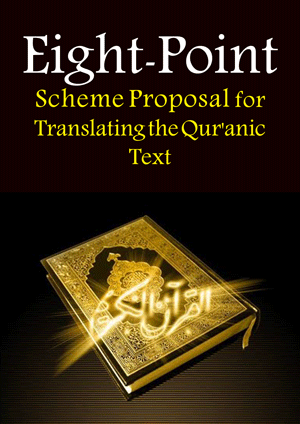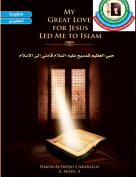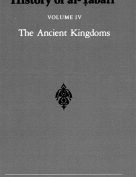
- Ali Al-Halawani
- https://www.researchgate.net
- 2016
- 15
- 4934
- 2049
- 2185
The purpose of this paper is to examine the issue of translating the Qur’anic text into foreign languages. In so doing, the paper considers the unique features and characteristics of the language of the Qur’an and the special difficulties encountered by translators, from many different backgrounds, of the divine text. Different types of translation in relation to the Qur’an—literal, non-literal, and interpretive—are briefly discussed. Based on this discussion, this paper proposes an eight-point scheme to best translate the meaning of the different Qur’anic terms and/or expressions. This scheme can be applied either by an individual translator or a body of translators alike. This paper shows that the language of the Qur’an poses considerable obstacles to the translators. Thus, the best mode of translation in relation to the Qur’an is the interpretive one. It also calls upon researchers and translators to examine the proposed eight-point scheme for validity, usefulness, and further development.
Significance of the Study
Although the translator has to be merely instrumental in translating the Qur’an, many translations have been produced by various translators from different religious, cultural, and scholarly backgrounds. A matter which lead to the coloring of these translations in one way or another. Not only did some of these translations fail to recognize the linguistic and cultural dimensions of the Qur’anic text, but they failed to comprehend the real essence of its terms and/or concepts; not to mention those dimensions related to the prevalent spirit of the sacred text.
For this reason, this paper proposes an eight-point scheme to help translators of the Qur’anic text understand these linguistic and cultural dimensions as well as the spirit of the sacred text in a systematic, methodical, and objective manner, which will hopefully reduce—but unfortunately not eradicate—the error rate; as to err is human. It is an attempt to set up a methodical scheme for understanding and then translating the Qur’anic terms and/or concepts in a way that may reduce the translator’s interference and influence on the transferred meaning into the TL.
This paper proves the importance of relying on an interpretive translation of the Qur’an instead of a literal or a meaning-based one, as the purpose of the translation is not only to translate the meaning, but also to provide some glimpses of the rhetorical inimitability of the Qur’anic text. It also stresses the importance of founding a high-profile specialized committee, instead of a single translator. This committee should include experts from different fields to fulfill this interpretive translation of the Qur’an as translation of the Qur’an cannot be a “one-man show,” regardless of the competence, skill, and loyalty that translator may have. This translation should also be reviewed and replaced by a new one, if necessary, every 10 years to cope with the fast-paced changes of time.




 Afar
Afar Afrikaans
Afrikaans Akan
Akan Albanian
Albanian Amharic
Amharic Arabic
Arabic Armenian
Armenian Assamese
Assamese Avari
Avari Azerbaijani
Azerbaijani Basaa
Basaa Bengali
Bengali Bosnian
Bosnian Brahui
Brahui Bulgarian
Bulgarian Burmese
Burmese Catalan
Catalan Chami
Chami Chechen
Chechen Chichewa
Chichewa Chinese
Chinese Circassian
Circassian Comorian
Comorian Czech
Czech Danish
Danish Deutsch
Deutsch Dutch
Dutch English
English Estonian
Estonian Finnish
Finnish French
French Fulani
Fulani Georgian
Georgian Greek
Greek Gujarati
Gujarati Hausa
Hausa Hebrew
Hebrew Hindi
Hindi Hungarian
Hungarian Icelandic
Icelandic Indonesian
Indonesian Ingush
Ingush Italian
Italian Japanese
Japanese Jawla
Jawla Kannada
Kannada Kashmiri
Kashmiri Katlaniyah
Katlaniyah Kazakh
Kazakh Khmer
Khmer Kinyarwanda
Kinyarwanda Korean
Korean Kurdish
Kurdish Kyrgyz
Kyrgyz Latvian
Latvian Luganda
Luganda Macedonian
Macedonian Malagasy
Malagasy Malay
Malay Maldivian
Maldivian Maranao
Maranao Mongolian
Mongolian N'ko
N'ko Nepali
Nepali Norwegian
Norwegian Oromo
Oromo Pashto
Pashto Persian
Persian Polish
Polish Portuguese
Portuguese Romani - gypsy
Romani - gypsy Romanian
Romanian Russian
Russian Serbian
Serbian Sindhi
Sindhi Sinhalese
Sinhalese Slovak
Slovak Slovenian
Slovenian Somali
Somali Spanish
Spanish Swahili
Swahili Swedish
Swedish Tagalog
Tagalog Tajik
Tajik Tamazight
Tamazight Tashamiya
Tashamiya Tatar
Tatar Thai
Thai Tigrinya
Tigrinya Turkish
Turkish Turkmen
Turkmen Ukrainian
Ukrainian Urdu
Urdu Uyghur
Uyghur Uzbek
Uzbek Vietnamese
Vietnamese Yoruba
Yoruba Zulu
Zulu